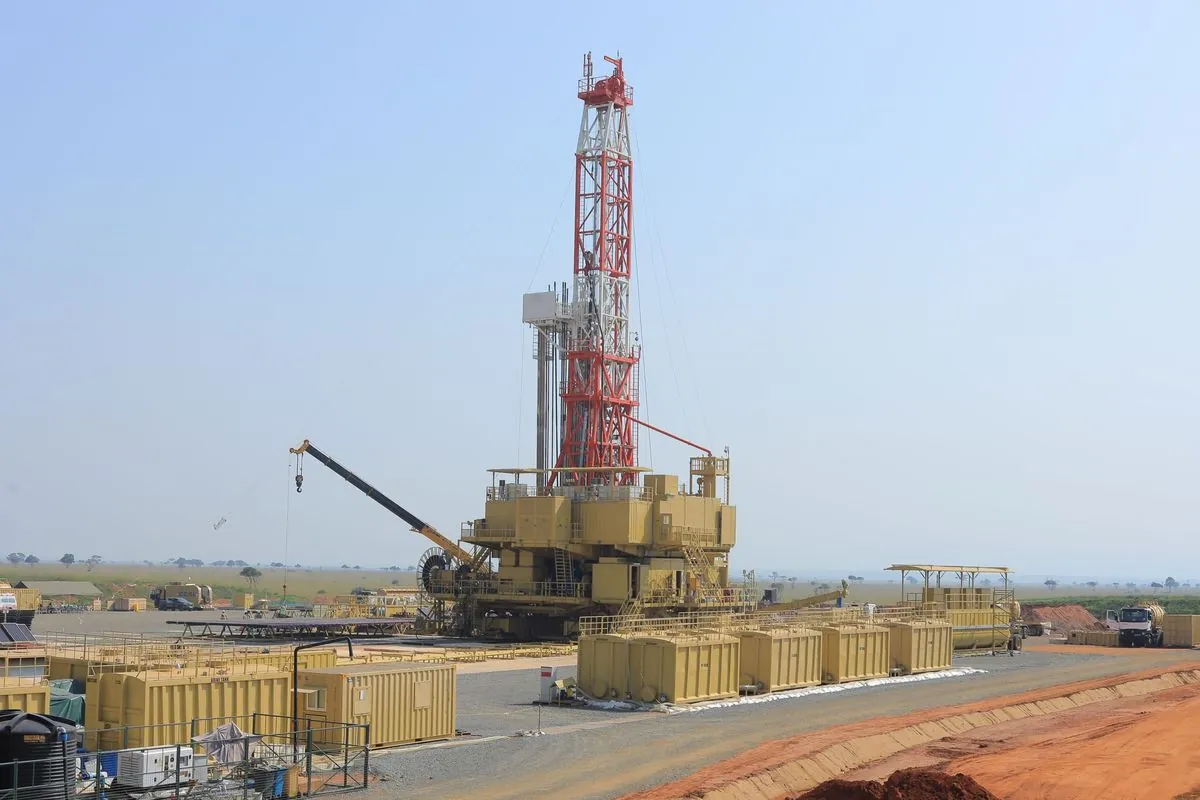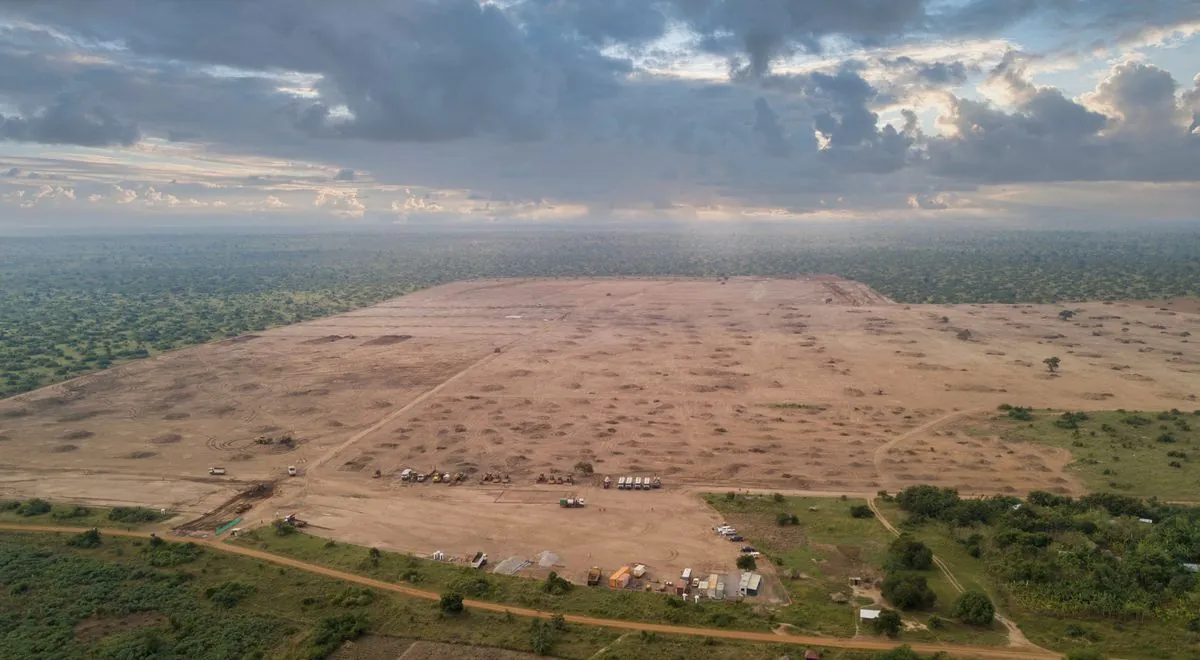Uganda Expands Oil Exploration Efforts, Seeks Chinese Funding for Pipeline
Uganda explores new oil regions to boost reserves beyond 6.5 billion barrels. Chinese funders' decision on crucial pipeline credit expected next month, as production delays persist.

Uganda, known as the "Pearl of Africa" for its natural beauty, is expanding its oil exploration efforts beyond the Albertine Graben basin. Ruth Nankabirwa, the country's Energy Minister, announced that preliminary studies are underway in two new regions: the Moroto-Kadam Basin and the Kyoga Basin.
These exploration efforts aim to augment Uganda's proven oil reserves, which currently stand at 6.5 billion barrels. The potential for commercial oil and gas in the Moroto-Kadam Basin appears promising, according to early results.
Uganda's journey in the oil sector began nearly two decades ago with the discovery of commercial quantities of crude oil in the Albertine Graben basin. However, production has faced numerous delays and is now projected to commence in 2025.
The existing oil fields, Tilenga and Kingfisher, are primarily owned by TotalEnergies (56.7%), with CNOOC and the Uganda National Oil Company (UNOC) holding the remaining stakes. Progress has been slow, with only 72 out of 457 planned wells drilled so far.

Several factors have contributed to the production delays, including disagreements over field development strategies, taxation issues, and infrastructure challenges. These setbacks highlight the complexities of developing a nascent oil industry in a country primarily known for its agricultural exports, particularly coffee.
To facilitate oil exports, Uganda is pursuing the construction of the East African Crude Oil Pipeline (EACOP). This 1,445-kilometer pipeline will transport crude oil from Uganda to Tanzania's Indian Ocean coast. Nankabirwa revealed that the government is awaiting a decision from Chinese funders, including EXIM bank and SINOSURE, regarding credit for the EACOP project. This crucial decision is expected next month.
Uganda's oil ambitions are part of a broader effort to diversify its economy and boost development. However, the country faces the challenge of balancing economic growth with environmental conservation, particularly given its rich biodiversity and attractions like the mountain gorillas in Bwindi Impenetrable National Park.
As Uganda pursues its oil dreams, it must navigate complex geopolitical and economic landscapes. The country's membership in the East African Community and its strategic location bordering several nations add layers of regional considerations to its energy policies.
The development of Uganda's oil sector occurs against a backdrop of rapid urbanization and a young population, with a median age of 16.7 years. This demographic reality underscores the importance of sustainable economic growth and job creation in the coming years.
While oil exploration expands, Uganda continues to address other pressing issues, including ongoing efforts to reduce HIV/AIDS prevalence and manage regional security challenges. The country's ability to balance these various priorities will be crucial as it seeks to leverage its natural resources for economic development.


































